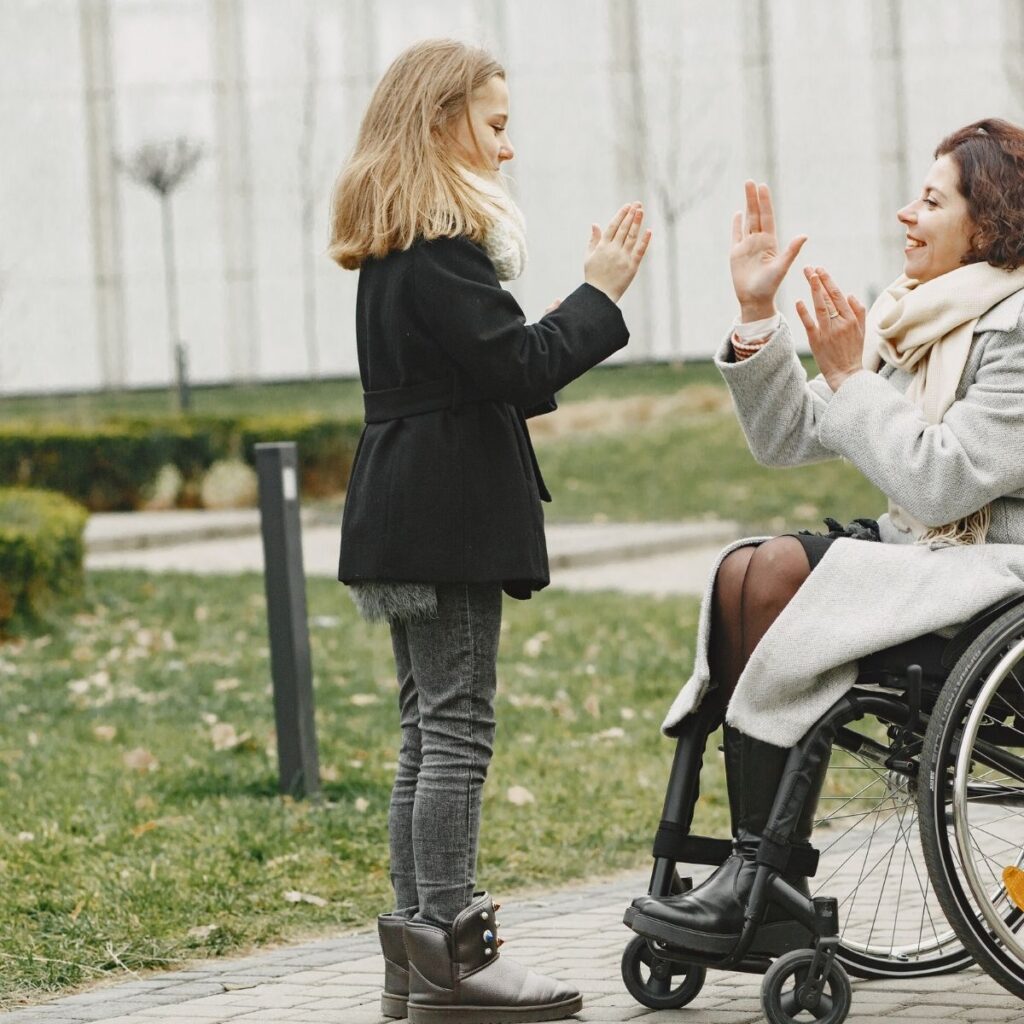
Being There for Your Loved One

Guidance and Support for Family and Friends of Spinal Cord Injury Patients
Dear Family & Friends,
Welcome to the Strength and Faith Foundation. As family and friends, your role is crucial in the recovery journey of your loved one. Your support, love, and encouragement provide the strength needed to overcome challenges and achieve milestones. We recognize and honor your dedication and commitment. Together, we will navigate this journey, offering hope, resilience, and unwavering support every step of the way.

About Strength and Faith Foundation
Mission: Our mission at Strength and Faith Foundation is to empower and support individuals with spinal cord injuries through comprehensive information, compassionate care, and engaging programs. Guided by our four pillars—information & support, the Angels Program, therapy, and entertainment—we strive to enhance quality of life, promote resilience, and foster a community of hope and strength.
Vision: At Strength and Faith Foundation, we envision a world where every individual affected by spinal cord injuries is empowered to lead a fulfilling and independent life. Through our unwavering commitment to support, education, and advocacy, we strive to create a compassionate community that inspires hope, promotes healing, and champions the dignity and potential of all those we serve.
Basic Information about Spinal Cord Injuries
A spinal cord injury (SCI) occurs when damage to the spinal cord results in a loss of function, such as mobility or feeling. SCIs can be caused by trauma, disease, or degeneration. The severity of the injury depends on the location and extent of the damage, affecting motor and sensory functions below the injury site. Early intervention and rehabilitation are crucial for maximizing recovery and improving quality of life.
Impact on Daily Life: How the injury affects the patient’s daily activities.
A spinal cord injury can significantly alter a person’s daily life. Patients may experience challenges with mobility, requiring the use of wheelchairs or other assistive devices. Routine activities such as dressing, bathing, and eating may require assistance or adaptations. Additionally, changes in bladder and bowel control, as well as respiratory and cardiovascular functions, may necessitate ongoing medical support. Emotional and psychological impacts are also common, requiring strong support from family and friends to help the patient adjust and maintain a positive outlook.
Stages of Recovery
Stage 1: Acute Phase (Accident to ICU)
– For Family and Friends:
– Providing Support:
Emotional Support:
– Be Present: Offer a listening ear and emotional comfort.
– Encourage Positivity: Help maintain a positive outlook and celebrate small victories.
– Seek Counseling: Consider family counseling to navigate emotional challenges together.
Practical Support:
– Assist with Daily Tasks: Help with activities such as dressing, bathing, and meal preparation.
– Promote Independence: Encourage the use of adaptive devices to foster self-sufficiency.
– Coordinate Care: Help manage medical appointments and coordinate with healthcare providers.
Stage 2: Subacute Phase (ICU to Rehabilitation)
– For Family and Friends:
– Rehabilitation Support: Being present and involved in the rehabilitation process.
Stage 3: Long-Term Management (Rehabilitation to Home)
For Family and Friends: Rehabilitation Support
– Be Involved: Attend therapy sessions and learn about the rehabilitation process.
– Encourage Efforts: Motivate and support the patient through their exercises and activities.
– Provide Assistance: Help with home exercises and adapt the living environment for accessibility.
How to Help
– Emotional Support: Offer emotional and psychological support by being present, listening, and encouraging positivity.
– Practical Assistance: Assist with daily tasks such as dressing, bathing, and meal preparation, and actively participate in the care team.
– Communication Tips: Communicate effectively by being patient, clear, and compassionate, and ensure open and honest dialogue.
– Supporting the Caregiver: Provide support to the primary caregiver by offering respite, helping with tasks, and being a source of emotional support.
Self-Care and Boundaries
– Maintaining Balance:
- Self-Care: Prioritize your own physical and mental health by taking breaks, engaging in activities you enjoy, and seeking support when needed.
- Setting Boundaries: Establish clear limits on your time and energy to prevent burnout and ensure you can provide sustainable support.
– Finding Support: Resources for Family and Friends
- Support Groups: Join local or online support groups to connect with others in similar situations.
- Counseling Services: Seek professional counseling for emotional support and guidance.
- Community Resources: Utilize community services such as respite care, social services, and volunteer organizations.
- Educational Programs: Participate in workshops and training sessions to learn more about spinal cord injuries and caregiving.g Support: Resources for family and friends.
Getting Involved
– Foundation Activities: Participating in foundation events and support groups.
– Fundraising Activities: How to set up GoFundMe, Help Hope Live campaigns.
– Food Preparation Collaboration: Organizing meal trains and food prep groups.
– Praying and Activity Groups: Creating and participating in support and prayer groups.